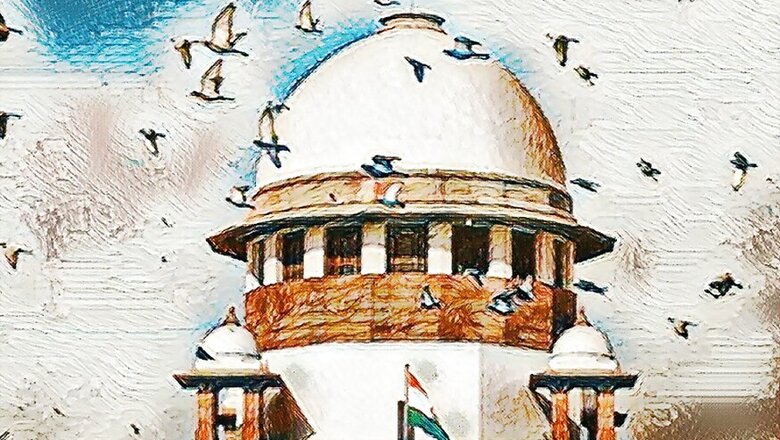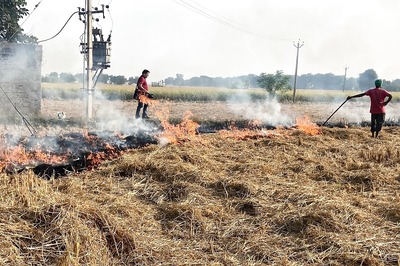
views
New Delhi: Contemplating conclusion of criminal trials within 60 days, the Supreme Court has sought assistance of the Department of Justice (DoJ) and the National Informatics Centre (NIC) for using technology to speed up the overstretched court processes.
A bench headed by Justice SA Bobde, underscoring the critical need of expediting the never-ending trials, has harped upon extensive use of video-conferencing during the trial for dispensing the need of personal appearances of witnesses.
The court pointed out that there are several witnesses who could be conveniently examined through video-conferencing in different cases but substantial amount of time is lost in getting them physically present for examination.
Not just this, the bench said, protracted trials also defeated the purpose of Section 309(1) of the Criminal Procedure Code, which prescribes that every trial must get concluded within 60 days.
“Section provides a time limit of 60 days within which the trial is supposed to be completed. In this context, we consider it appropriate to explore the possibility of using video-conferencing for the purpose of recording evidence since it is believed that such use will eliminate the time taken for summoning the witnesses to Court,” noted the bench, also comprising Justices L Nageswara Rao and R Subhash Reddy.
However, senior advocate Sidharth Luthra submitted before the bench that the video-conferencing facility is not always available throughout the trial in various parts of the country and in the present form, this cannot be wholly relied on.
The Court then passed the order: “Since, this appears to be surmountable, we consider it appropriate to hear National Informatics Centre (NIC) and Department of Justice in the matter.”
It has now issued notices to the DoJ and the Director General of the NIC to assist the Court in resolving the issues so that technology could come to the aid of accelerating the criminal trials that involve personal liberty of citizens. The Court will hear the DoJ and the NIC on January 30.
The bench was hearing a criminal appeal by a man sentenced to death for raping and killing a minor girl. A sessions court in Madhya Pradesh’s Khandwa has handed out the maximum punishment in March 2013. The capital punishment was confirmed by the High Court three months later as it noted that “extreme depravity” shown by the convict satisfied the test of ‘rarest of the rare,’ warranting the death sentence. On his appeal, the top court had in January 2014 stayed the execution of the death penalty.




















Comments
0 comment